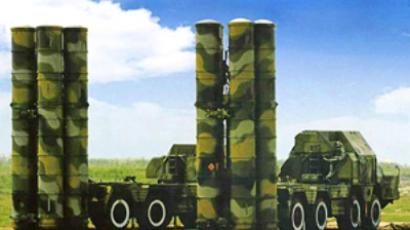Middle East in feud over water
The Middle East is a hot bed of conflict over many issues, but it is water in which things are really boiling. The Jordan River has become a bone of contention between Israel, Jordan and Syria.
And while governments dispute control of sacred parts, it is the people who suffer.
Siham Fakhoury from Jordan has always had to worry about water. Years ago she bought a tank to keep as much of the precious stuff in as possible. She needs it to wash her family’s clothes twice a week – and the rest of the time, her children know to keep their showers short. In the Jordanian capital, H2O is pretty scarce.
“Big families usually buy water tanks so we can have enough water to last the whole week. But the tanks are expensive and not everyone can afford them. We get water two days a week. On those days I switch on the taps and fill the tanks for a few hours, so we can manage on the other days,” said Silham.
It is a problem affecting the whole region. Competition for water between Israel, Jordan and Syria has become so fierce that it has turned the once mighty Jordan River into a trickle.
“The river's almost been destroyed because of the conflict, because of the competition. Every country has tried to block off whatever it can before it reaches the international, shared part of the river so that they can keep it to themselves. That's typical of a conflict situation,” explained Gidon Bromberg, Israel director, Friends of the Earth Middle East.
Israel wants to declare the lower part of the Jordan River off-limits as it is where many believe Jesus was baptized by John the Baptist. Sixteen years ago, Israel and Jordan signed a treaty that committed both sides to returning fresh water to the river, but that has never happened.
Dr Muhammad Shatanawi, former Jordanian minister of water and irrigation, says Israel is ignoring other parts of the agreement.
“When it comes to the reality, Israel is taking two times or three times the share that was decided by one of the latest plans in the ‘50s,” he said. “So whilst giving Jordan a lot of water to irrigate areas in the Jordan Valley, and also to use for domestic supply and to save water in the upland, also for domestic supply, now this water has been almost diminished.”
But the allegations have provoked fury. Arik Belkind was one of the Israeli team which negotiated with the Jordanians about how water would be shared between the two countries.
“The problem is that when you say two to three times, he didn't say a quantity. I can say very clearly that we are taking the exact amount with respect to the Israeli allocation during the winter period and the summer period. We didn't take even one cubic meter more,” said Arik Belkind former head, Jordan Valley Water Association.
And as the effects of global warming are felt more year-on-year, disputes in this part of the Middle East over water will continue to heat up.













